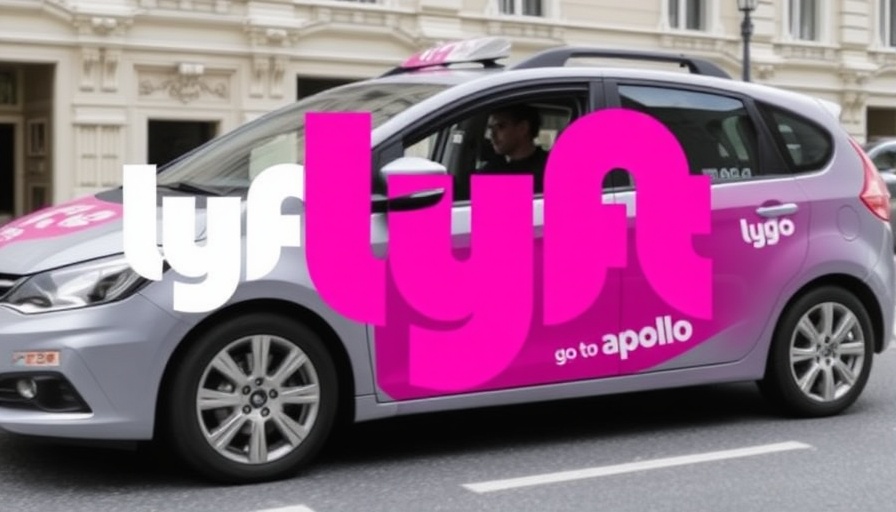
The Rise of Apollo Go and Lyft in the European Market
As urban landscapes see an exponential rise in the demand for sustainable transport, the competition among tech giants in the autonomous vehicle space is intensifying. Lyft and Apollo Go—Baidu’s pioneering robotaxi service—are increasingly making headlines with their plans to extend operations into Europe. The announcement that Apollo Go will leverage Lyft's existing network to launch in Germany and the UK by 2026 is not just a strategic expansion; it represents a meaningful shift in the landscape of mobility services.
Understanding the Partnership Dynamics
Baidu has been expanding its Autonomous Vehicle (AV) capabilities in Asia, mirroring the trajectory of its American rivals such as Waymo. By teaming up with Lyft, Apollo Go is taking a cue from major industry players who have successfully navigated market entry through partnerships. According to Robin Li, co-founder and CEO of Baidu, this collaboration is a pivotal milestone in Apollo Go’s globalization strategy. The companies plan to roll out thousands of sixth-generation robotaxis across Europe, which poses several potential benefits: access to established user bases, a shared understanding of European regulatory frameworks, and combined technological expertise.
Market Impact and the Future of Robotaxis
The partnership signifies a robust investment in the future of transportation, particularly in urban centers where traditional taxis struggle against rising congestion and pollution. Robotaxies can alleviate this problem by offering on-demand services that require fewer physical resources. According to experts, this synergy between Lyft's established ride-hailing platform and Baidu’s cutting-edge technology could pave the way for autonomous services that not only meet customer demand but also advance sustainability goals by reducing the need for car ownership.
Counterarguments: Challenges Ahead for Robotaxi Services
However, while the outlook appears promising, there are significant challenges that both Lyft and Apollo Go will need to confront as they advance into Europe. Regulatory hurdles in various countries present thorny issues; local laws often lag behind the pace of technological advancement, creating potential roadblocks to operations. Furthermore, they face competition not just from traditional taxi services but also from homegrown local startups that may have a better understanding of regional market dynamics.
The Importance of Local Adaptation in a Global Strategy
A thorough understanding of local infrastructures and consumer behavior will be essential for success. Each market in Europe has its own unique characteristics, ranging from urban density to existing mobility options. For instance, the extensive and efficient public transport systems in cities like London and Berlin challenge the attractiveness of on-demand rides. The partnership will need to remain flexible and responsive to these local conditions to thrive.
Looking Ahead: Predictions for the Robotaxi Market
As the timelines for the rollout approach, analysts predict several key trends. Market penetration is expected to accelerate as consumer acceptance of autonomous vehicles grows, driven by factors such as improved safety records and enhanced user experiences. Furthermore, advancements in Artificial Intelligence and machine learning will play crucial roles in making AV systems more reliable and user-friendly.
Conclusion: Embracing the Future of Transportation
The ride-hailing industry is on the brink of a transformation that could redefine urban mobility. With their ambitious plans for Europe, Lyft and Apollo Go are not merely expanding their services: they are laying the groundwork for a future where autonomous rides become a normative mode of transport. This evolution promises both challenges and opportunities, but with the right strategies, partnerships can help to usher in a new era of smarter, sustainable mobility.
 Add Row
Add Row  Add
Add 




Write A Comment